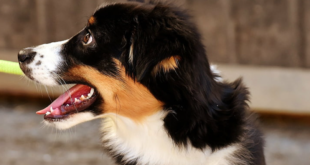When Do Puppies Stop Biting So Much – Puppies are undeniably adorable, but they can also be quite a handful, especially when it comes to biting. If you’re a new puppy owner, you might find yourself wondering, “When do puppies stop biting so much?” It’s essential to understand the biting behavior of puppies, as well as the factors that influence it, in order to guide them towards more appropriate behaviors. In this article, we’ll explore the journey of puppyhood and provide valuable insights into when puppies typically outgrow their excessive biting habits.
Table of Contents
When Do Puppies Stop Biting So Much?
Puppies explore and interact with the world through their mouths. Mouthing and biting are natural behaviors for them. As puppies develop, their teeth start to emerge, and the teething process begins. This can lead to increased biting and chewing tendencies as they seek relief for their teething gums. It’s important to note that biting is not necessarily a sign of aggression in puppies; it’s a normal part of their development.
Developmental Milestones and Biting
Understanding the different stages of puppyhood can give us a clearer picture of when puppies start to reduce their biting frequency. In the early weeks of a puppy’s life, they use their mouths to explore their surroundings. They learn about objects, textures, and even their littermates through mouthing and gentle biting.
During the socialization period, which typically occurs between 3 to 14 weeks of age, puppies learn crucial bite inhibition from their littermates and mother. They practice controlling the force of their bites and understand the limits of acceptable mouthing. This period plays a significant role in shaping a puppy’s bite inhibition skills.
As puppies enter adolescence, usually around 4 to 8 months of age, they may test boundaries and exhibit sporadic bursts of biting. This stage is when they refine their bite inhibition further. With consistent training and reinforcement, puppies can learn to reduce the frequency and intensity of their bites.
Factors Affecting Biting Frequency
Several factors can influence how much puppies bite and when they start to decrease their biting tendencies. Breed characteristics and energy levels play a role in determining the intensity and frequency of biting. Some breeds are naturally more mouthy and energetic, requiring additional attention and training in managing their biting behavior.
Each individual puppy has a unique temperament and personality, which can also influence their biting tendencies. Some puppies may be more prone to biting due to higher levels of playfulness, assertiveness, or sensitivity.
Environmental factors and socialization experiences are vital in shaping a puppy’s behavior. Puppies that have limited exposure to other dogs and humans may exhibit more biting due to lack of socialization. Conversely, well-socialized puppies tend to have better bite inhibition and are less likely to engage in excessive biting.
Strategies to Reduce Biting
If you find yourself wondering, “How can I stop my puppy from biting?” don’t worry! There are several effective strategies to help curb excessive biting in puppies:
- Provide appropriate chew toys and teething aids: Giving puppies access to safe and durable chew toys helps redirect their biting behavior towards acceptable alternatives. Frozen toys or teething rings can also provide relief during the teething process.
- Consistent and positive reinforcement training: Using positive reinforcement techniques, such as rewarding good behavior and redirecting biting onto toys, can effectively teach puppies what is acceptable and what is not.
- Redirecting biting behavior: Whenever your puppy tries to bite you, redirect their attention to a toy or chew item. This helps them understand that biting humans is not appropriate but biting toys is acceptable.
- Socializing puppies with other dogs and humans: Regular and supervised interactions with other dogs and people allow puppies to learn appropriate play and bite inhibition. Puppy socialization classes can be beneficial for providing controlled environments for socialization.
Patience and Persistence
It’s important to remember that reducing excessive biting in puppies requires patience and persistence. Every puppy is unique, and individual variations exist in their learning and development. Progress may be gradual, but with consistent training and reinforcement, you’ll start to see improvements in their biting behavior.
If your puppy’s biting becomes increasingly aggressive or uncontrollable, it’s crucial to seek professional help from a qualified dog trainer or behaviorist. They can assess the situation, provide tailored guidance, and assist in addressing any underlying issues.
Conclusion of When Do Puppies Stop Biting So Much
Puppy biting is a normal and natural behavior that puppies engage in as they explore the world around them. Understanding when puppies stop biting excessively can help new puppy owners navigate this challenging phase more effectively. By providing appropriate chew toys, consistent training, and socialization experiences, you can guide your puppy towards reducing their biting frequency and developing good bite inhibition skills. Remember to be patient, as every puppy progresses at their own pace, and seek professional help if needed.
FAQs
Q: Why do puppies bite so much?
Puppies bite as a natural way of exploring and interacting with their environment. It is a part of their development and teething process.
Q: When do puppies typically stop biting excessively?
Puppies gradually learn to control their biting behavior as they go through developmental milestones and receive proper training. Most puppies show significant improvement by the time they reach adulthood, around 6 to 8 months of age.
Q: How can I teach my puppy not to bite?
Teaching bite inhibition through positive reinforcement, redirecting biting behavior, and providing appropriate chew toys are effective ways to discourage excessive biting.
Q: What if my puppy’s biting becomes aggressive?
If your puppy’s biting behavior becomes aggressive or uncontrollable, it is important to seek professional help from a qualified dog trainer or behaviorist. They can provide guidance and assistance in addressing the issue.
Q: How long does the teething process last in puppies?
The teething process in puppies usually starts around 3 to 4 months of age and can last up to 6 months. During this time, puppies may experience discomfort and increased biting as they seek relief for their teething gums.
 Treat For Dog – Brain Training for Dogs, Dog Training & Obedience Discover Treat For Dog and get your pup on the path to smarter, happier, and healthier living with brain training for dogs.
Treat For Dog – Brain Training for Dogs, Dog Training & Obedience Discover Treat For Dog and get your pup on the path to smarter, happier, and healthier living with brain training for dogs.




